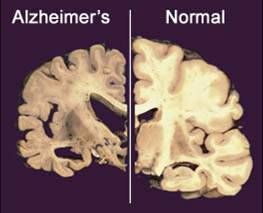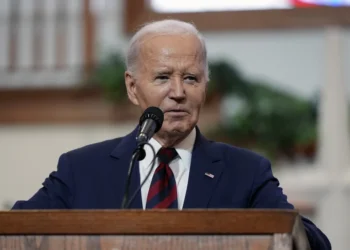After years of inflation and rising populism, congressional Republicans are under enormous pressure to increase the benefit as part of legislation extending the 2017 Trump tax cuts.
Key party figures see enlarging the credit, currently $2,000 per child, as critical for appealing to families and the working class and maintaining GOP congressional majorities. For others, the stakes are even higher: Some conservatives now see larger benefits for children as necessary to help reverse a decline in birthrates that threatens the future of the nation.
Yet it won’t be easy getting an expansion enacted. Some fiscal conservatives see the child tax credit as at odds with lowering tax rates to spur economic growth. And Republicans cannot enact every tax break that they and President Donald Trump have called for. If they did, it would add around $6 trillion to federal budget deficits over the next decade.
Instead, Republicans must at least partially offset tax cuts with tax hikes elsewhere or spending cuts, as they try to pass historic legislation through budget reconciliation, a process that allows bills to bypass the filibuster and pass with only a simple majority in the Senate.
The child tax credit, or CTC, was doubled as part of the 2017 Tax Cuts and Jobs Act. Now, Republicans hope to use reconciliation to extend many expiring provisions from that law. If the doubled CTC isn’t at least extended, millions of families across the country would see a tax hike — a terrible prospect for Republicans who swept into office promising lower taxes and relief from inflation.
“This is one of the more popular tax credits from the 2017 bill, and so I think any effort to reduce it would face pretty stiff opposition,” Alex Conant, a GOP strategist and a partner at Firehouse Strategies, told the Washington Examiner.
The backdrop
The child tax credit began with bipartisan support in 1997 under President Bill Clinton. Those with children who met certain criteria were allowed to subtract the amount of the credit from their federal income taxes. Then, the credit was nonrefundable, meaning that the filer’s credit could not be higher than the amount of taxes owed. They would not receive a cash reimbursement.
Under President George W. Bush, the child tax credit increased from $500 to $1,000 and was made partially refundable for certain low-income taxpayers. Over the years and under subsequent administrations, the child tax credit was changed and expanded until it was doubled to $2,000 as part of the 2017 tax cuts.
To keep the total cost of the tax overhaul down, at least on paper, Republicans wrote the law so that the child tax credit expansion and other provisions relating to households expired at the end of 2025.
The moment
Since 2017, conservatives have only become more invested in the CTC. As a whole, the Republican Party has become more populist and favorably inclined toward benefits for the middle class. The past few years have also seen the rise of conservative pronatalism, that is, urging population growth, as exemplified by Elon Musk and Vice President JD Vance.
The total fertility rate, or the average number of children a woman will have in her lifetime, plummeted to 1.62 in 2023, the lowest level in a century, according to the Centers for Disease Control and Prevention.
The rate has trended down since 2007, when the total fertility rate reached the replacement rate of 2.1 births per woman. Demographers define the replacement rate as the number of births that will keep a population stable, with no growth or decline.
Lyman Stone is the senior fellow and director of the Pronatalism Initiative at the Institute for Family Studies. He said that the child credit likely does provide a modest boost fertility.
“The reality is that the child tax credit probably does increase fertility somewhat,” he told the Washington Examiner. “Now the effects are not huge, because it’s not that huge of a benefit, but we have decades of research making very clear that when you subsidize fertility more you do, in fact, get more babies.”
More generally, conservatives favor expanding the CTC to appeal to families. Public support for expanding the CTC is high and the tax-writing House Ways and Means Committee has emphasized that if that provision is not extended, 40 million families will see the child tax credit cut in half.
Sen. Josh Hawley (R-MO), a notable populist, argued for a larger benefit — beyond what was included in the 2017 bill — on the basis that working families have been “absolutely shellacked” the past four years.
“I mean, we’re the party, supposedly, of tax cuts — but I just hear about extending what’s already there, baseline. I don’t hear a lot about actually cutting taxes,” he said.
Sandra Asuncion, the director of government affairs for the conservative American Principles Project, pointed out how inflation has hurt households and families across the country and argued that the credit should be indexed to inflation.
For reference, the $2,000 credit would now be worth about $2,500 now if it had been indexed for inflation in 2017. So families are feeling less of a benefit now than seven years ago.
“This is simply, I think, kind of stemming the bleeding for a lot of families,” Asuncion said.
The push
Sen. Jim Banks (R-IN) sponsored child tax credit legislation, sponsored by Rep. Blake Moore (R-UT) in the House, that could be a benchmark for what Republicans include in their reconciliation bill.
“I hope so, I’ve had a lot of great feedback,” Banks told the Washington Examiner when asked about a boosted child tax credit in reconciliation.
Banks’s bill, the Family First Act, increases the child tax credit amount from the current $2,000 level to $4,200 for families with a child up to age 5. The credit would be $3,000 for families with a child between 6 and 17.
Democrats temporarily expanded the child tax credit in 2021 and removed work requirements — meaning that there was no income threshold to receive the credit. Banks’s bill sets the income threshold at $20,000 to receive the full child tax credit amount, or at least $10,000 for the full credit during pregnancy. Those thresholds would be indexed to inflation.
Notably, the bill also creates a $2,800 tax credit for pregnant mothers. Moore told the Washington Examiner earlier this year that it is an important component because of all the changes that happen during the pregnancy and child-raising process.
Last month, former House Speaker Newt Gingrich and former Sen. Rick Santorum joined a group of 31 former lawmakers, conservative intellectuals, and influential pro-family individuals in calling on the House and Senate to expand on the child tax credit while indexing the benefit to inflation.
“The child tax credit is one of the best ways to ease the increasing costs of raising a family,” Santorum told the Washington Examiner. “President Trump’s doubling of the credit in 2017 came at a critical time for working families, but inflation has eroded the value of that good work. I’m encouraged that the president and Congress have expressed interest in putting families first by permanently bolstering this critical policy.”
Stone, at the Institute for Family Studies, said indexing it to inflation is a huge priority and would be very beneficial to families in the long run.
“Just in general, it’s foolish to not inflation index your tax benefits,” he said.
The odds
Yet the budget math makes it tricky. Simply extending the CTC as is for the next 10 years would reduce federal revenues by almost $800 billion, according to the CBO. Raising the credit to $2,500 a child would cost the treasury another $242 billion, the left-of-center think tank Third Way has estimated. Indexing it would be another $89 billion.
Even for the federal government, a trillion dollars or more is a lot. Especially in the context of a rapidly rising federal debt.
Sen. Rick Scott (R-FL) said that a bigger priority for him right now than expanding the CTC is getting the government’s fiscal situation under control, which he said would benefit families.
“What I’ve been focused on is how do we make sure we balance this budget,” he told the Washington Examiner. “If we want to help families with children, what we’ve got to do is we’ve got to get the inflation rate down and we’ve got to get their interest rates down, and you only do that by balancing the budget.”
Senate Finance Committee Chairman Mike Crapo (R-ID) said increasing the child tax credit is on the table and has been under discussion for a long time now, but he declined to discuss specific provisions that might end up in the reconciliation legislation.
“The child tax credit is a priority for the administration, it’s a priority for [Vice President] JD Vance, it’s a priority for the Senate and for many of my colleagues — so full speed ahead,” he said.
Trump has pushed for a lot of new tax provisions to be included in reconciliation, but a bigger child tax credit — beyond 2017 levels — was not among a list of priorities circulated by the White House earlier this year.
The priorities included eliminating taxes on tips, ending taxes on Social Security, eliminating taxes on overtime pay, adjusting the state and local tax deduction cap, removing special tax breaks for billionaire sports team owners, closing the carried interest tax deduction “loophole,” and introducing tax cuts for made-in-America products.
Sen. Steve Daines (R-MT) said that it is too early to say exactly what will be in the final tax reconciliation package, but said that there is a receptivity within the Republican side to do something on the child tax credit.
Stone said that while there is a lot of interest, details of what is in the tax package isn’t yet available and there is no whip count for support on expanding it beyond 2017 levels.
“I think at a minimum, there will be a push to ensure that we do not drop back down to the pre-TCJA levels,” Stone said. “I think if we drop to the pre-TCJA levels, there will be blood in the water for whoever let that happen.”
THE FOUR FACTIONS SPEAKER JOHNSON MUST PLEASE TO PASS TRUMP’S BUDGET MEGABILL
Asuncion said that she is at least expecting the CTC to be extended and not allowed to drop back down to $1,000, but hopes it will be indexed to inflation.
“Overall, there is a broad coalition of support for at least maintaining it, because 72% of voters would consider inaction from Congress as a deliberate increase, and nobody wants to have that on their record,” she said.

















